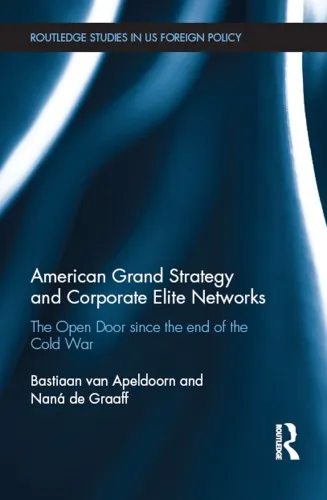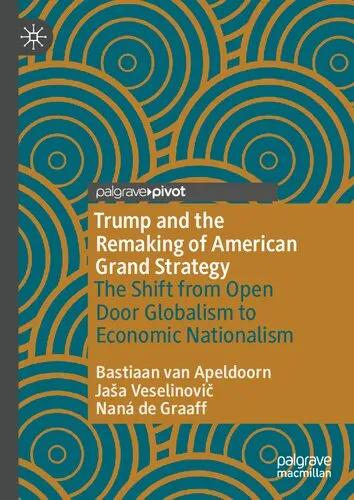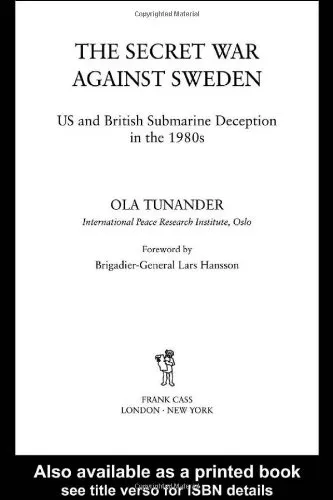American Grand Strategy and Corporate Elite Networks: The Open Door since the End of the Cold War
4.6
Reviews from our users

You Can Ask your questions from this book's AI after Login
Each download or ask from book AI costs 2 points. To earn more free points, please visit the Points Guide Page and complete some valuable actions.Related Refrences:
Welcome to the in-depth exploration of 'American Grand Strategy and Corporate Elite Networks: The Open Door since the End of the Cold War', a work that unveils the intricate ties between American grand strategies and corporate elite networks. Authored by Apeldoorn, Bastiaan van, and Graaff, Nana De, this book delves deep into the intersections of political power and economic influence, offering a fresh perspective on how America has navigated its international politics since the end of the Cold War.
Detailed Summary of the Book
The book explores the relationship between the United States' foreign policies and the interests of its corporate elite, arguing that there is a significant synergy between America's grand strategies and corporate power structures. The authors propose the 'Open Door' as a central theme, viewing it as an imperative in American strategies aimed at maintaining the global dominance of its economic interests. Through comprehensive analyses, they explore how policy decisions are influenced by corporate networks, thus embedding economic motives within the strategic calculus of the nation.
Drawing on extensive research, Apeldoorn and De Graaff meticulously analyze key historical and contemporary events post-Cold War, revealing how financial elites intersect with governmental strategies. The book dissects the roles played by transnational corporations and elite policy-planning groups, dissecting their influence on American foreign policy-making. It is a crucial resource for understanding the complex relationships shaping the world order, and the pivotal role the US plays within it.
Key Takeaways
The book’s essential insights include the argument that economic motives often drive military and diplomatic initiatives. It illustrates the influence of corporate elite networks on political decision-making and how policy directions are not merely based on democratically shared national interests but are substantially influenced by elite agendas.
An understanding of the 'Open Door' strategy is crucial for grasping why America continues to hold a firm grip on global economic policies. Additionally, through profound scrutiny of case studies, the authors exhibit how these strategies morph with changing political landscapes while maintaining core economic interests.
Famous Quotes from the Book
“Foreign policy is not just a domain of state strategists but an arena where corporate elite interests are synergistically aligned with national strategies.”
“Economic objectives have always underpinned military and diplomatic pursuits; the Open Door policy epitomizes this reality.”
Why This Book Matters
This book is crucial for scholars and enthusiasts of international relations, political science, and economic policy, providing an indispensable lens through which contemporary US foreign and economic policies can be understood. It offers a unique intersectional approach, where economic interests are not secondary to political objectives but are indeed the core around which strategies are constructed.
The insights gathered from this book can empower policymakers, academicians, and informed citizens to critically analyze future geopolitical maneuvers. In an era where the blending of state and corporate powers is increasingly complex, this book provides foundational knowledge that aids in distinguishing underlying motives behind America’s global engagement strategies.
Free Direct Download
You Can Download this book after Login
Accessing books through legal platforms and public libraries not only supports the rights of authors and publishers but also contributes to the sustainability of reading culture. Before downloading, please take a moment to consider these options.
Find this book on other platforms:
WorldCat helps you find books in libraries worldwide.
See ratings, reviews, and discussions on Goodreads.
Find and buy rare or used books on AbeBooks.
1350
بازدید4.6
امتیاز0
نظر98%
رضایتReviews:
4.6
Based on 0 users review
Questions & Answers
Ask questions about this book or help others by answering
No questions yet. Be the first to ask!





![The Ultimate iOS Interview Playbook: Conquer Swift, frameworks, design patterns, and app architecture [Team-IRA]](https://s3.refhub.ir/images/thumb/The_Ultimate_iOS_Interview_Playbook__Conquer__29925.webp)






